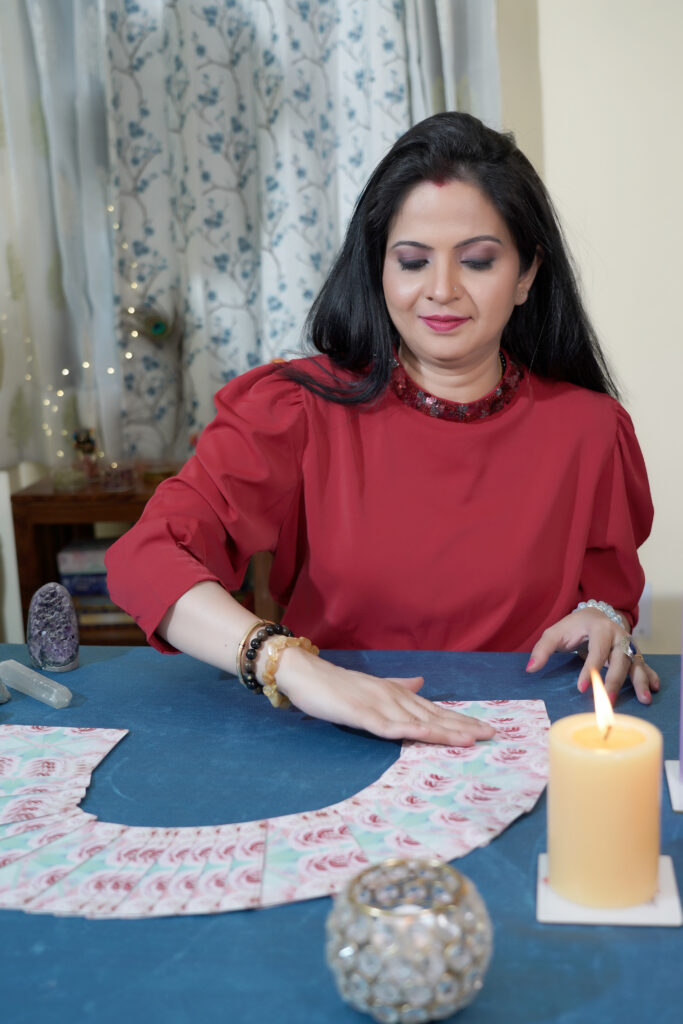There are several qualities that can make a good Tarot card reader:
Intuition: a good Tarot card reader has a strong sense of intuition and is able to trust their inner voice when interpreting the cards.
Knowledge: a good Tarot card reader has a deep understanding of the symbolism and meanings behind each card in the deck, as well as the different spreads and layouts that can be used.
Empathy: a good Tarot card reader is able to empathize with their clients and understand their needs and concerns.
Communication skills: a good Tarot card reader is able to communicate clearly and effectively with their clients, and is able to explain the meanings of the cards in a way that is easy to understand.
Ethics: a good Tarot card reader adheres to ethical standards, such as maintaining client confidentiality and avoiding giving medical or financial advice.
Compassion: a good Tarot card reader approaches their clients with compassion and kindness, and is able to create a safe and supportive environment for them to explore their questions and concerns.
Experience: a good Tarot card reader has a lot of experience with reading the cards, and is able to draw on their past readings to inform their current interpretations.

Problems that a Tarot card reader can solve?
A Tarot card reader can provide insight, guidance, and support that may help a person gain clarity and perspective on a particular issue or challenge they are facing.
Some of the areas where a Tarot card reading may be helpful include:
Relationship issues: Tarot cards can provide insight into romantic relationships, friendships, and family dynamics.
Career and work-related issues: Tarot cards can provide guidance on job opportunities, career paths, and workplace relationships.
Personal growth and development: Tarot cards can provide insights into a person’s strengths, weaknesses, and personal growth opportunities.
Spiritual guidance: Tarot cards can provide guidance and support for individuals who are seeking spiritual growth and development.
Decision-making: Tarot cards can provide clarity and perspective on difficult decisions, helping individuals make more informed choices.
It is important to remember that Tarot card readings are for entertainment purposes only and should not be relied upon as a substitute for professional advice or guidance. Tarot card readers are not trained therapists, financial advisors, or medical professionals, and should not be consulted for these types of issues.
What should be the ethics of a Tarot card reader?
Tarot card readers should follow ethical guidelines in their practice to ensure that they provide a safe, supportive, and respectful environment for their clients. Here are some of the key ethics that Tarot card readers should adhere to:
Confidentiality: Tarot card readers should respect their clients’ privacy and keep all personal information confidential.
Informed consent: Tarot card readers should obtain informed consent from their clients before beginning a reading, explaining the process, and setting clear expectations for the session.
Non-judgmental approach: Tarot card readers should approach their clients with an open and non-judgmental attitude, regardless of their background, beliefs, or lifestyle.
Respect for boundaries: Tarot card readers should respect their clients’ boundaries and avoid providing unsolicited advice or guidance.
Professionalism: Tarot card readers should conduct themselves in a professional manner, maintaining appropriate boundaries and avoiding any actions or behaviour that could be perceived as inappropriate or exploitative.
Personal responsibility: Tarot card readers should take personal responsibility for their actions and avoid making promises or predictions that they cannot fulfil.
Continuous learning: Tarot card readers should continue to educate themselves and improve their skills and knowledge through ongoing study and practice.
It’s important to choose a Tarot card reader who follows ethical guidelines to ensure that you receive a safe, supportive, and respectful reading.

